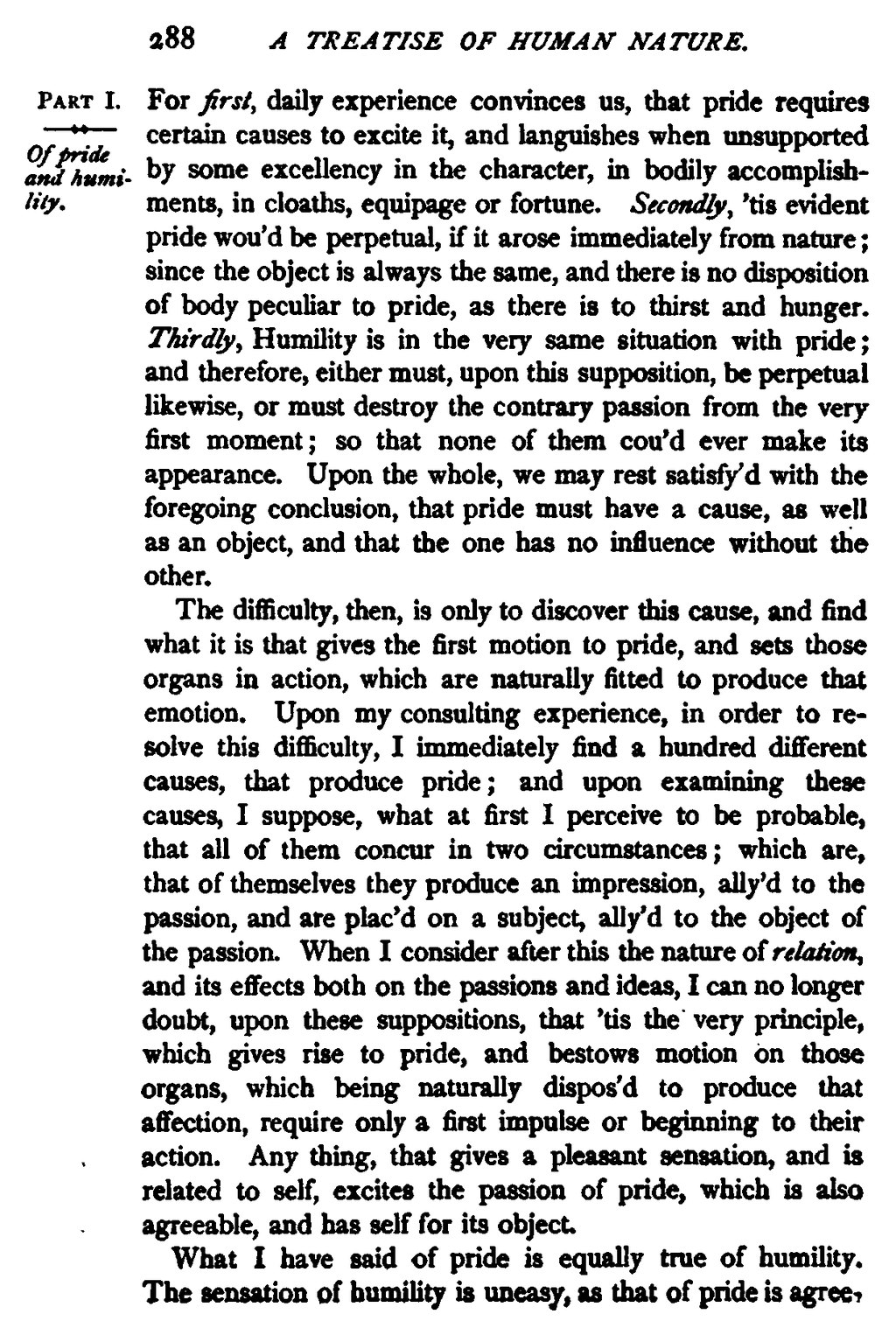For first, daily experience convinces us, that pride requires certain causes to excite it, and languishes when unsupported by some excellency in the character, in bodily accomplishments, in cloaths, equipage or fortune. Secondly, 'tis evident pride wou'd be perpetual, if it arose immediately from nature; since the object is always the same, and there is no disposition of body peculiar to pride, as there is to thirst and hunger. Thirdly, Humility is in the very same situation with pride; and therefore, either must, upon this supposition, be perpetual likewise, or must destroy the contrary passion from the very first moment; so that none of them cou'd ever make its appearance. Upon the whole, we may rest satisfy'd with the foregoing conclusion, that pride must have a cause, as well as an object, and that the one has no influence without the other.
The difficulty, then, is only to discover this cause, and find what it is that gives the first motion to pride, and sets those organs in action, which are naturally fitted to produce that emotion. Upon my consulting experience, in order to resolve this difficulty, I immediately find a hundred different causes, that produce pride; and upon examining these causes, I suppose, what at first I perceive to be probable, that all of them concur in two circumstances; which are, that of themselves they produce an impression, ally'd to the passion, and are plac'd on a subject, ally'd to the object of the passion. When I consider after this the nature of relation, and its effects both on the passions and ideas, I can no longer doubt, upon these suppositions, that 'tis the very principle, which gives rise to pride, and bestows motion on those organs, which being naturally dispos'd to produce that affection, require only a first impulse or beginning to their action. Any thing, that gives a pleasant sensation, and is related to self excites the passion of pride, which is also agreeable, and has self for its object.
What I have said of pride is equally true of humility. The sensation of humility is uneasy, as that of pride is agree-
